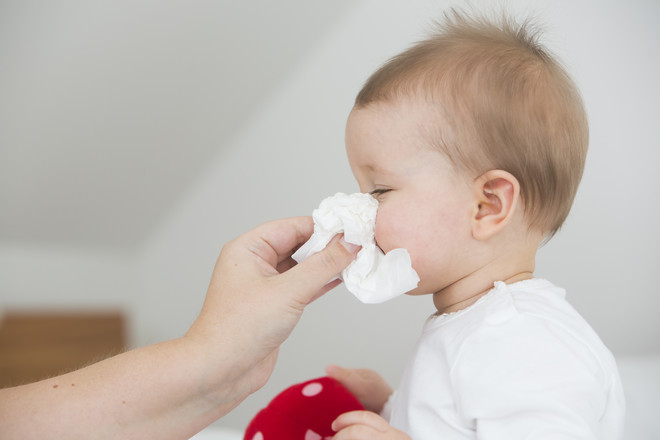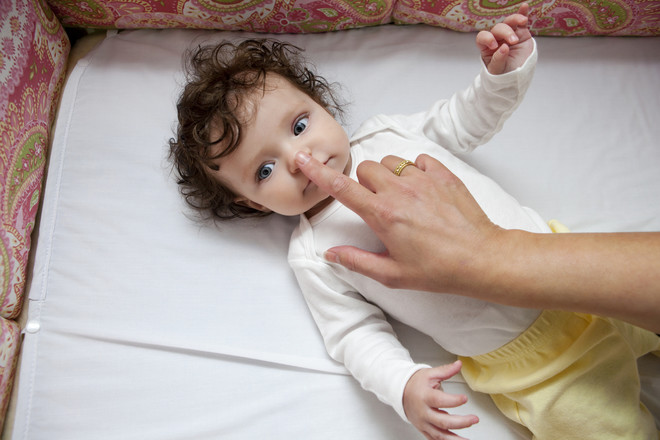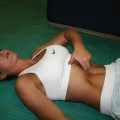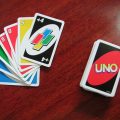Recently, the media was terrible news: in Petersburg, a one-year-old child was taken to hospital in a critical condition simply because he was treated ... a rhinitis! No, he was not put his feet in a basin with hot water. Do not rubbed mustard. Baby dripped nose Naphthyzinum. There was a similar case in January. “Vanya’s one-year-old mother is forced to work because she’s raising her son alone. Baby, while mom is at work, is with her grandmother. And here Vanyusha fell ill. The grandmother was given clear instructions, and my mother went to work. But the grandmother felt that the snot should be treated more actively, and my mother, as luck would have it, did not leave any drops. Grandmother and dripped naphthyzine 0.1%. Yes, more to treat well. The grandmother noticed that the baby went to bed very early in the afternoon nap. Sick, she thought. In the afternoon, I woke up several times to treat Naphthyzinum again. And when my mother returned home late in the evening and could not wake up the sleeping child for a whole day, then she called an ambulance, ”says the doctor, who got Vanya. A photo: GettyImages The boy was in critical condition. Coma first degree, heart beat four times slower than it should. At that time everything was ok, the kid was saved. But the danger has not gone away. “Other drops from the cold are not sweets either, but naphthyzin is just rat poison. Stop it already dripping in children! ”- calls the pediatrician. According to the doctor, often the problem is that people buy cheap analogues instead of the means recommended by the doctor. The active substance is the same? So, there is no difference! "The Mazda CX5 is the same as the Lada-five, do not overpay! The "Lada" also has a steering wheel and pedals, and she drives! Her level of safety, speed, comfort and functionality are absolutely comparable with the imported analogue, and who says otherwise, he just sold out to car dealerships and gets kickbacks from them! ”- the doctor draws an analogy. As Sergey Butry explained, it’s not only the matter and in its purity, dosage accuracy, delivery method, side effects. Moreover, pharmacies often advise buyers to buy a cheap generic (copy) instead of an expensive original. Nazivin expensive? Take Naphthyzinum! “In fact, naftizine nasal drops are a completely hellish drug, outdated and toxic,” says the doctor. And that's why. 1. Naphthyzinum causes a rebound symptom - not bad removes nasal edema, but after the end of the action (after 2–3 hours) the nose swells even more, this leads to too frequent instillation and drug rhinitis or even poisoning. Causes drug (atrophic) rhinitis already in 1-2 weeks of constant use. Naphthyzinum easily causes poisoning when instilled into the nose. In addition, the child can easily drink it - such is the way the package has. The severity of poisoning depends on the dose - from a slight drowsiness to the death of the child. “The situation is aggravated by the fact that parents do not understand how dangerous Naftizin poisoning is. They will hide Grandma's pills from pressure, even harmless mother's hormonal contraceptives will be hidden, but Naphthyzin will be left in sight - it's just droplets in the nose, ”Sergey Butry indignant.
A photo: GettyImages The boy was in critical condition. Coma first degree, heart beat four times slower than it should. At that time everything was ok, the kid was saved. But the danger has not gone away. “Other drops from the cold are not sweets either, but naphthyzin is just rat poison. Stop it already dripping in children! ”- calls the pediatrician. According to the doctor, often the problem is that people buy cheap analogues instead of the means recommended by the doctor. The active substance is the same? So, there is no difference! "The Mazda CX5 is the same as the Lada-five, do not overpay! The "Lada" also has a steering wheel and pedals, and she drives! Her level of safety, speed, comfort and functionality are absolutely comparable with the imported analogue, and who says otherwise, he just sold out to car dealerships and gets kickbacks from them! ”- the doctor draws an analogy. As Sergey Butry explained, it’s not only the matter and in its purity, dosage accuracy, delivery method, side effects. Moreover, pharmacies often advise buyers to buy a cheap generic (copy) instead of an expensive original. Nazivin expensive? Take Naphthyzinum! “In fact, naftizine nasal drops are a completely hellish drug, outdated and toxic,” says the doctor. And that's why. 1. Naphthyzinum causes a rebound symptom - not bad removes nasal edema, but after the end of the action (after 2–3 hours) the nose swells even more, this leads to too frequent instillation and drug rhinitis or even poisoning. Causes drug (atrophic) rhinitis already in 1-2 weeks of constant use. Naphthyzinum easily causes poisoning when instilled into the nose. In addition, the child can easily drink it - such is the way the package has. The severity of poisoning depends on the dose - from a slight drowsiness to the death of the child. “The situation is aggravated by the fact that parents do not understand how dangerous Naftizin poisoning is. They will hide Grandma's pills from pressure, even harmless mother's hormonal contraceptives will be hidden, but Naphthyzin will be left in sight - it's just droplets in the nose, ”Sergey Butry indignant. Photo:GettyImagesThe doctor advises to be wary of vasoconstrictor drops for children. In some countries, they are generally prohibited for children under two to five years old. If you cannot afford the expensive medications prescribed by the doctor, do not hesitate to ask him to prescribe cheaper analogues. But do not listen to the pharmacist in the drugstore under any circumstances! In addition, one family member should give the medicine to the child. To prevent it from happening that mom dripped, dad dripped, and grandma didn’t stay away either. “If you mistakenly poured an adult dose of naphthyzine into a child, or when pressing on a plastic dropper the tip fell off and a lot of the drug poured into the child’s nose, or if the child drank even a small amount of vasoconstrictor drops, call an ambulance immediately, this is very dangerous,” the doctor concludes. Symptoms of naphthyzine poisoning: - inadequate drowsiness, - bradycardia (slow pulse), - pallor, - cold sweat, - lethargy of the child. Read also:
Photo:GettyImagesThe doctor advises to be wary of vasoconstrictor drops for children. In some countries, they are generally prohibited for children under two to five years old. If you cannot afford the expensive medications prescribed by the doctor, do not hesitate to ask him to prescribe cheaper analogues. But do not listen to the pharmacist in the drugstore under any circumstances! In addition, one family member should give the medicine to the child. To prevent it from happening that mom dripped, dad dripped, and grandma didn’t stay away either. “If you mistakenly poured an adult dose of naphthyzine into a child, or when pressing on a plastic dropper the tip fell off and a lot of the drug poured into the child’s nose, or if the child drank even a small amount of vasoconstrictor drops, call an ambulance immediately, this is very dangerous,” the doctor concludes. Symptoms of naphthyzine poisoning: - inadequate drowsiness, - bradycardia (slow pulse), - pallor, - cold sweat, - lethargy of the child. Read also:

Making Money with Desserts: Success Stories
Evgeniya Polischuk (Fedutinova) instagram:@evgeniyafedutinovavk.com/janeshomebaking– It all started with baking for family and friends. Gradually, I started posting photos of my baked goods on Instagram – and orders started coming in. I made my first custom-made cake on October 13, 2014, and a little earlier I started making macaroons and cupcakes. You could say that the business “found me”, I am very […]

Soups are cold recipes with photos
Cold cucumber soup with yogurt and lemonsorbet from the chef of the restaurant La Taverna Alexander Zhurkin Photo: Getty Images Ingredients: Plain yoghurt – 125 g Cucumber – 150 g Lemon/lime sorbet – 50 g Cocktail shrimp – 24 g Fresh ginger juice – 1 g Lime juice – 5 g Fresh orange juice – 5 g Parsley – 1 g Pink pepper – 1 g Watercress – […]

barbeque kebab
Pork tenderloin in glaze Photo:Dmitry Bayrak/dbstudioPreparation time: 20 minutes + marinating time.Calories: 454 kcal per serving.For 4 servings: 4 pork tenderloins (approximately 300 g each), 1 onion, 2 cloves of garlic, 1 tsp. lemon zest, 1 tsp. lemon juice, a pinch of ground cumin, coriander and turmeric, 1 tbsp. vegetable […]

Pierre Duacan: dietary recipes: Ducane diet
Beetroot soup Photo:Season’S, Luxury Hotels RepresentationYou will need:· Boiled beetroot – 60 g· Fresh cucumbers – 20 g· Red radish – 20 g· Green onions – 10 g· Egg – 1 pc.· Drinking mineral water – 200 g· Salt – 1 gPreparation:· Boil the egg and beetroot.· Grate the cucumbers, radish and part of the beetroot. Put everything […]





